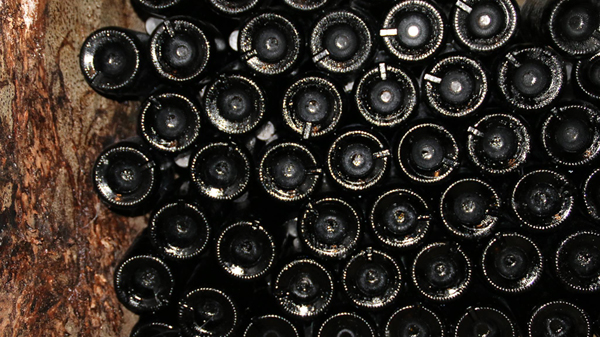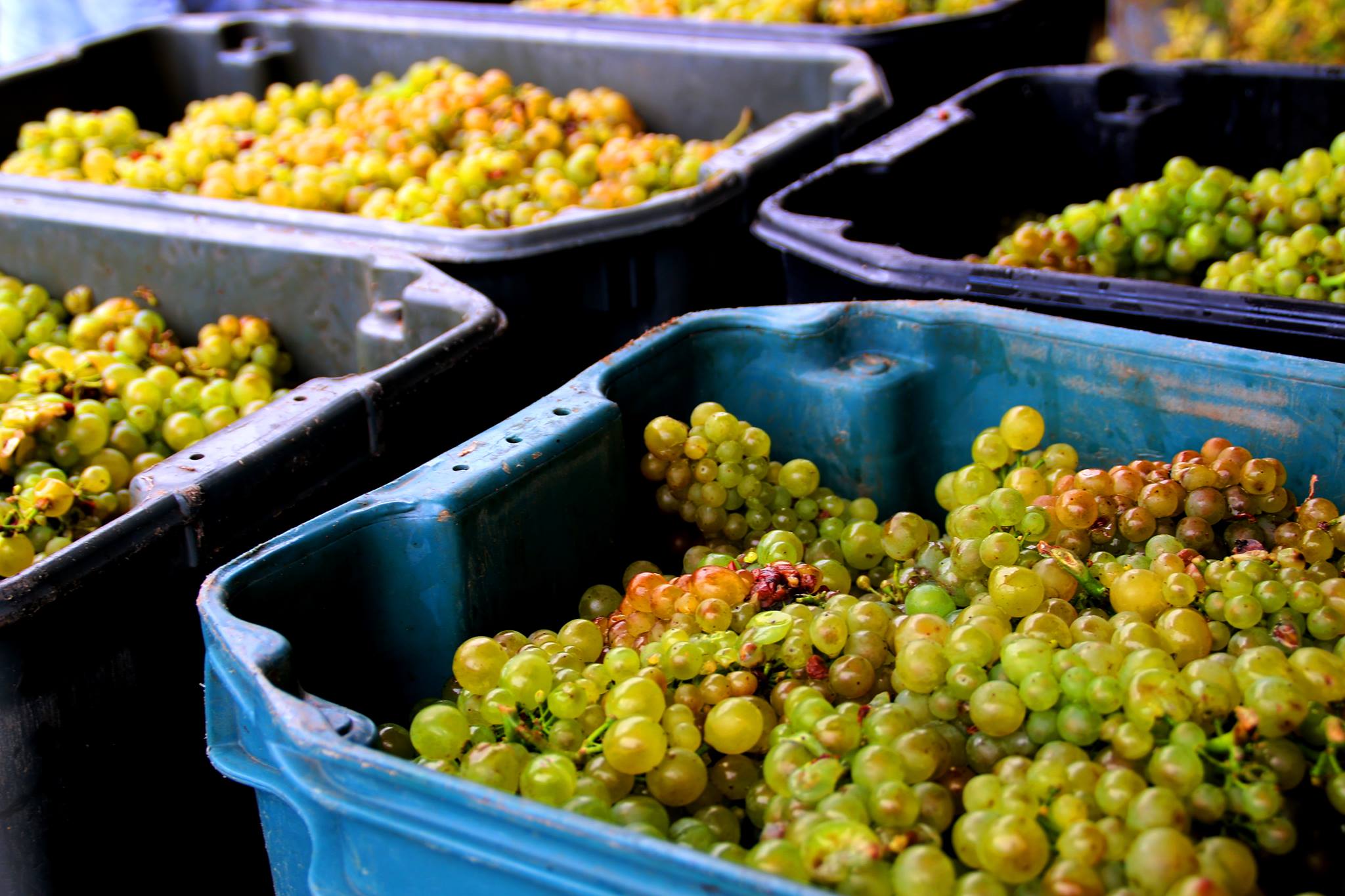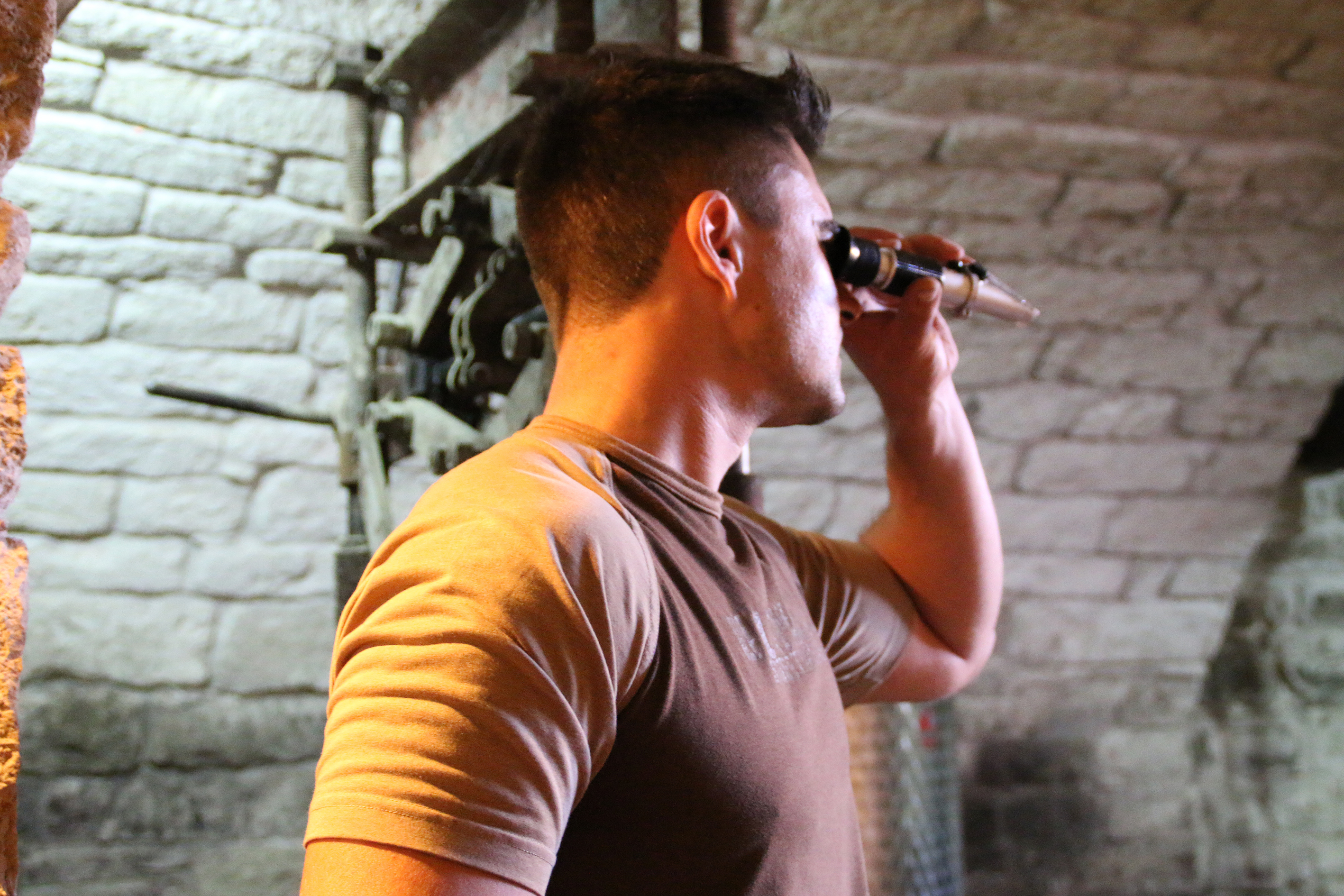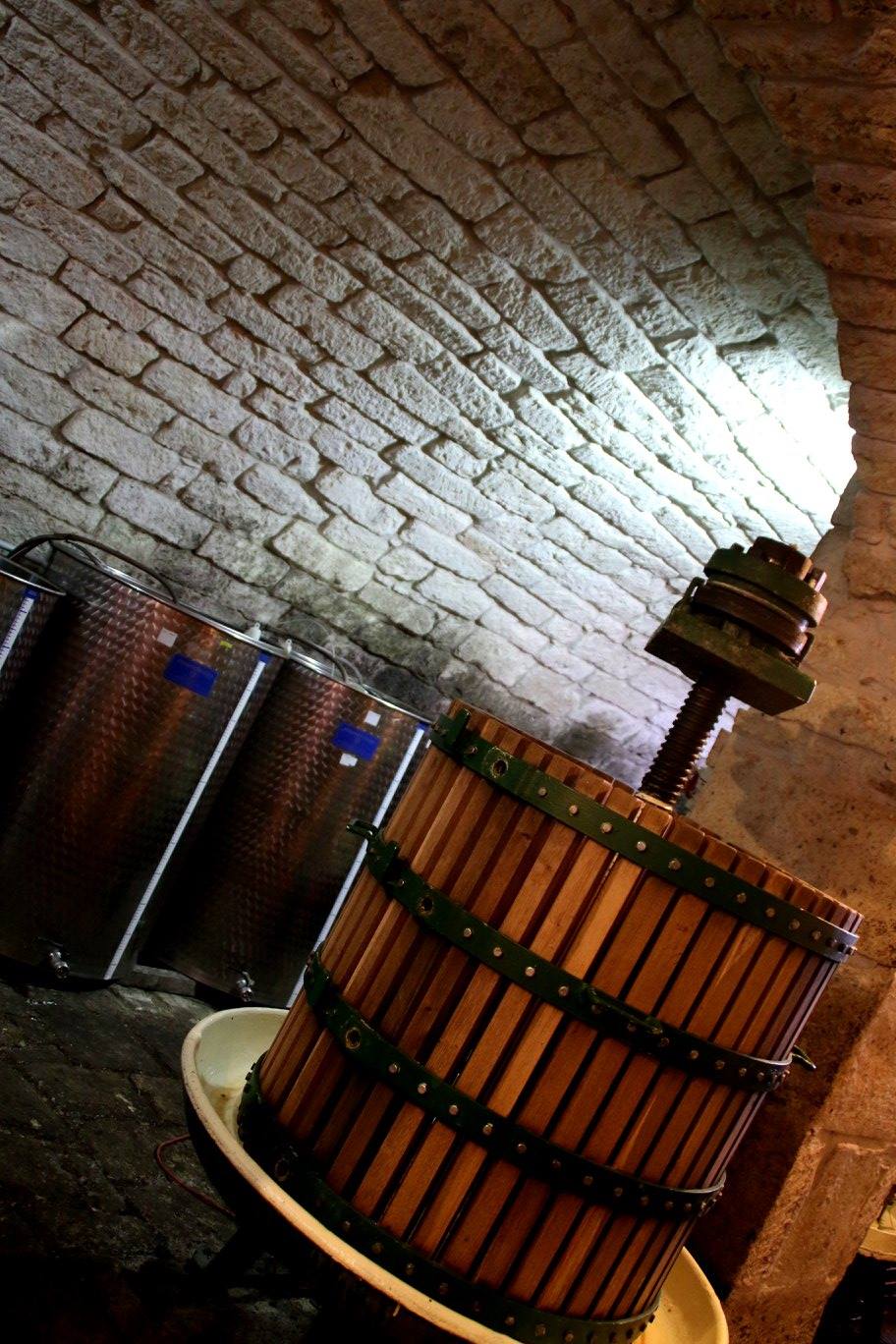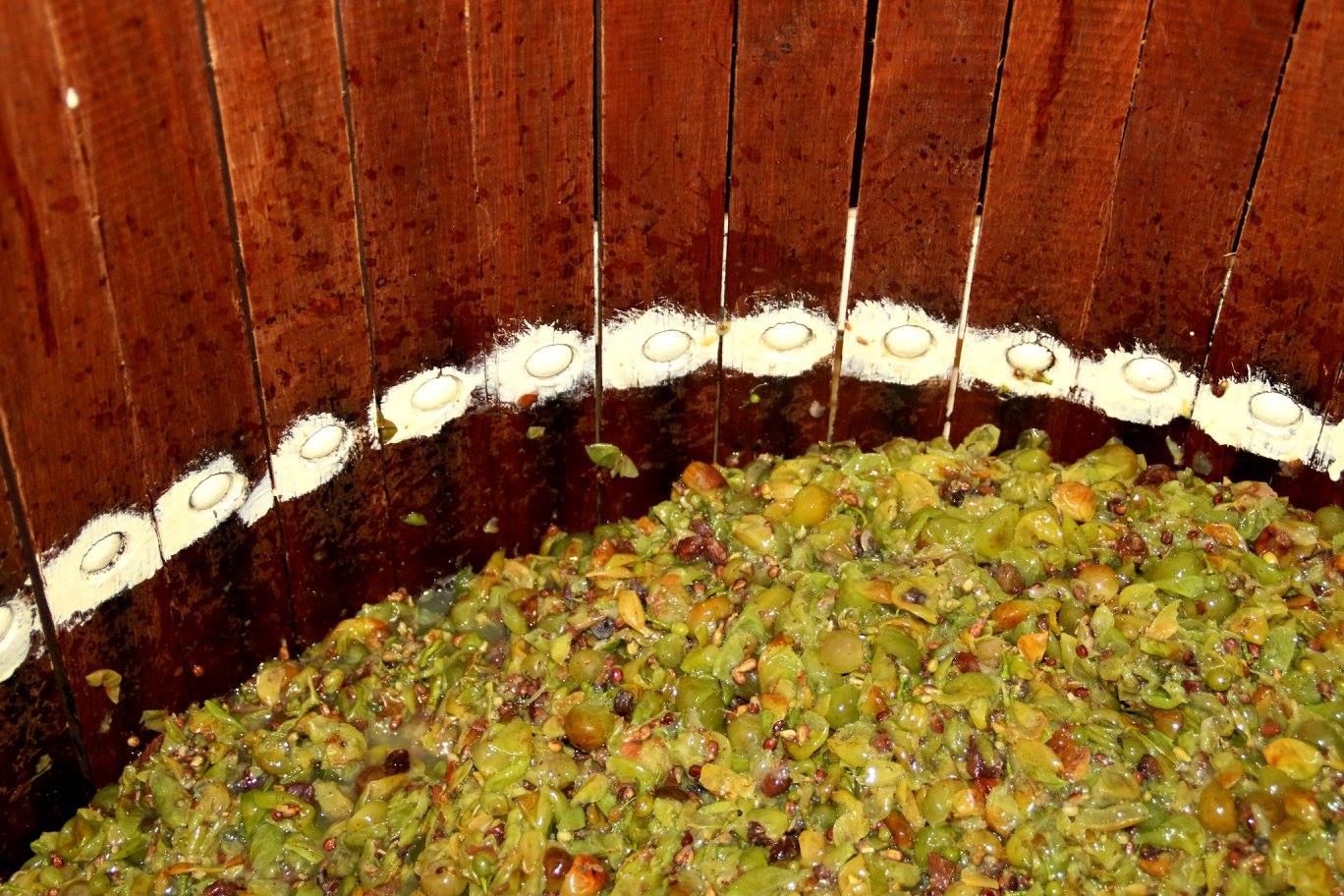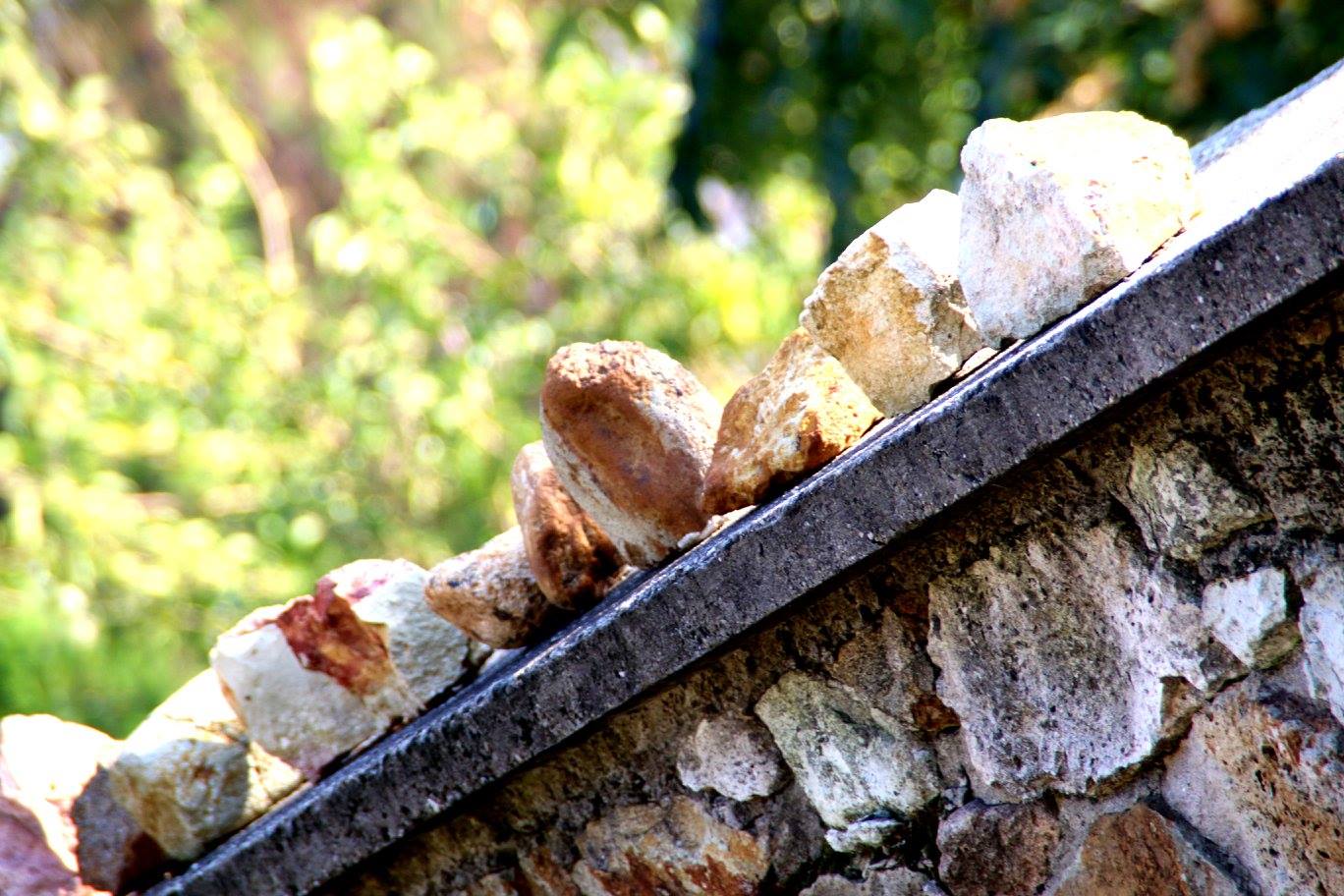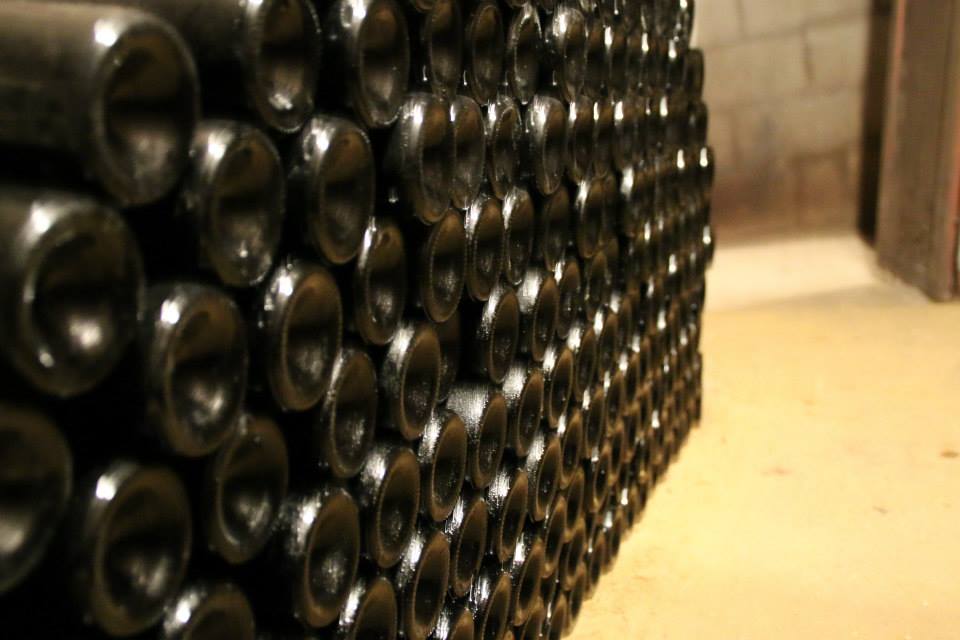
Winemaking
The formation of the geographical site and the geology of the village of Mád started 14-15 million years ago, at the bottom of the Pannon Sea. The tectonic plate west of the river Bodrog started to rise, went on cracking and the volcanism started on huge area. The rocks that formed the soil are liparite, i.e., solid volcanic lava or rhyolite tuff. For millions of years, post-volcanic activity occurred, and the tuff kept on forming: quartz, kaolin, bentonite, and illit were created as well as the zeolite, the most important mineral of the village of Mád. The crystal structure of the zeolite enables the roots of the vine to reach the head stone; consequently, it can take up the moisture from the layers which are extremely rich in minerals. The soil of the vine was formed on these head stones. The soil with red clay is typical of the village of Mád, and it’s simply called „muck".
In our village, there are about 1200 acres of vine. Our winery cultivates 2.5 acres in the village of Mád in Juharos, Dancka, Szilvás, and Suba hills which are called dűlö here.
„OUR AIM IS TO PRODUCE NATURALISTIC WINE, which shows the character, mineral taste and distinct acidity of the Mád Terroir.”
In order to reach this aim, we work with organic plant protection on old plantations, achieving low yield in the vineyards. After hand harvest we process the grape using natural yeast only, without enzymes, and with the help of traditional, manual Kossuth press in the cellar.
The viticulture of the vine of the winery is supervised by Bertalan Szarka, the wine is produced by Dénes Szarka oenologist, and the guests are hosted by Enikő Szarka.

